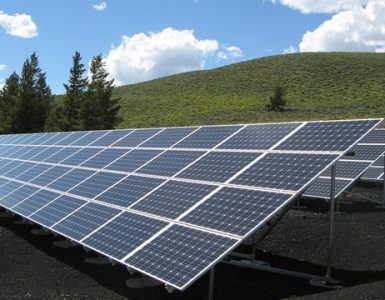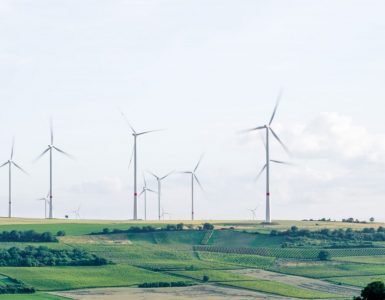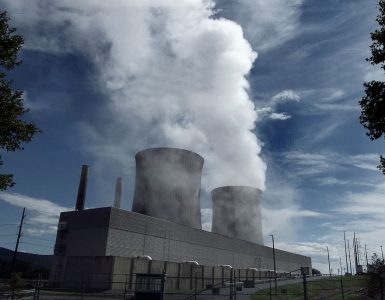The G20 New Delhi Leaders Declaration 2023, adopted with a common consensus, can be a significant step towards climate action.
In the 83 paragraphs of the New Delhi Declaration, the word Climate is mentioned 48 times, unlike any of the past G20 Declarations. In the previous year’s G20 Summits, climate was mentioned 27 times in Bali and 33 times in Rome.
It can be said that just inserting the word climate a few times yearly does not mean it will solve the problem of global warming and environmental degradation. However, what can be inferred is the importance of climate solutions among the leaders of the major economies and its increasing mind space.
The 2023 G20 New Delhi Summit tried to bring some major consensus on many aspects related to climate finance, sustainable energy transitions, and conserving natural ecosystems.
The declaration has emphasized the need for “USD 5.8-5.9 trillion in the pre-2030 period required for developing countries, in particular for their needs to implement their NDCs, as well as the need for USD 4 trillion per year for clean energy technologies by 2030 to reach net zero emissions by 2050.”
Additionally, G20 endorsed a goal to triple global renewable energy capacity and emphasized the necessity for emissions to peak before 2025. The G20 New Delhi Summit Declaration also recognized that limiting global warming to 1.5 degrees Celsius necessitates a 43 percent reduction in greenhouse gases by 2030 compared to 2019 levels.
However, it does not mention phasing out fossil fuels as leaders at the G20 Summit did not reach a consensus on this topic, despite a United Nations IPCC report stressing the same for achieving net-zero emissions.
A background about G20
When you have the leaders of countries that account for 85% of the world’s economic output, more than 75% of world trade in a single room, and approximately 80 percent of global emissions, that is surely considered an important gathering.
This gathering is called G20, and its members include the European Union (EU) plus 19 countries, including Argentina, Australia, Brazil, Canada, China, France, Germany, India, Indonesia, Italy, Japan, Mexico, Russia, Saudi Arabia, South Africa, South Korea, Turkey, the UK, and the US.
The Group of Twenty (G20) was founded in 1999 after the Asian financial crisis to be a forum for discussing ways to restore economic stability and international cooperation. The first leaders’ summit was held in 2008, and since then, every year, leaders meet in one of the G20 countries, where the presidency moves by rotation.
Regarding addressing climate change issues, the first major action was taken in 2018 during the Argentine Presidency when The Climate Sustainability Working Group (CSWG) was established. The following year, under Japan’s Presidency, the Environment Deputies Meeting (EDM) started.
CSWG and EDM are established as working groups under the Sherpa Track, where they discuss environmental issues and provide recommendations. These climate and environment-related internal groupings within the G20 framework focus on areas like circular economy, ocean health, marine litter, coral reefs, land degradation, biodiversity loss, water resource management, and ways to mitigate and adapt to climate change.
In 2023, India held the presidency, and throughout the year, it held various meetings on manifold topics like business, finance, economic growth and development, tourism, and climate, where members of G20 countries plus the invited countries and other international organizations participated.
The grandest occasion of the G20 presidency is the event when all the leaders of G20 nations meet, and it happened in New Delhi on the 9th and 10th of September, 2023. The G20 Summit New Delhi Summit is the 18th Meeting of the G20 Group.
Outcomes of the G20 New Delhi Summit
The biggest outcome of the New Delhi summit was the Africa Union becoming part of the G20 organization this year.
In addition, the US, India, Saudi Arabia, and the EU announced a new network of railways and shipping routes, the India-Middle East-Europe Economic Corridor, or IMEC, on the summit’s sidelines. The IMEC is designed to increase trade between South Asia, the Middle East, and Europe.
Then, given the noises around the Russia-Ukraine war, there was wide speculation that it would be difficult for the leaders to reach a consensus on a joint declaration document. However, that was laid to rest when Indian Prime Minister Narendra Modi announced the ‘good news’ of the G20 New Delhi Leaders Declaration.
There are 83 paragraphs in the declaration document, of which eight paragraphs focus on the Ukraine conflict and its economic implications. In comparison, 14 paragraphs are categorized under the Green Development Pact for a Sustainable Future.
If we compare it with the previous G20 summit held in Bali, Indonesia, in that declaration, Climate-related aspects were covered in 8 out of 51 paragraphs, and two were on the Russia-Ukraine situation.
Apart from climate action, the declaration focuses on UN Sustainable Development Goals, multilateral financing, digital public infrastructure, artificial intelligence (AI), and international taxation.
Climate Action is the focus of the G20 Summit.
The challenges of climate change include rising global greenhouse gas (GHG) emissions, biodiversity loss, pollution, drought, land degradation, and desertification are making the presence felt across the board. So, it is unsurprising that countries’ leaders have started their climate action endeavors.
The New Delhi Declaration discusses and focuses on various aspects of addressing climate change and is encapsulated under the “Green Development Pact for Sustainable Future.”
The declaration emphasizes low-GHG/low-carbon emissions and climate-resilient and environmentally sustainable development pathways. It also stresses the urgent need to accelerate global actions to address development and climate challenges, promote Lifestyles for Sustainable Development (LiFE), and conserve biodiversity, forests, and oceans.
This year also saw the introduction of the Resource Efficiency and Circular Economy Industry Coalition (RECEIC), which will improve waste management, reduce waste generation by 2030, and highlight the importance of zero-waste initiatives.
Though the declaration recognizes that limiting global warming to 1.5°C requires prompt and sustained reductions in global GHG emissions of 43% by 2030 relative to the 2019 levels, it was largely silent on phasing out fossil fuels, with just a reference to phasing out of inefficient fossil fuel subsidies. However, it did speak about energy transitions and renewable energy.
Regarding specific non-fossil fuel-based technologies, a plan is to establish the Green Hydrogen Innovation Centre steered by the International Solar Alliance (ISA) and collaborate on civil nuclear energy technologies, including Small Modular Reactors (SMRs).
The biggest standout of the G20 New Delhi Declaration is the spelling out of increasing global investment for meeting the climate goals of the Paris Agreement. The member countries have called out the need for “USD 5.8-5.9 trillion in the pre-2030 period required for developing countries, in particular for their needs to implement their NDCs, as well as the need for USD 4 trillion per year for clean energy technologies by 2030 to reach net zero emissions by 2050”.
In addition, in light of climate disasters in various parts of the world, the declaration sought funding arrangements for responding to loss and damage for assisting developing countries that are particularly vulnerable to the adverse effects of climate change, including establishing a fund.
Global Biofuel Alliance
Another notable initiative launched during the sidelines of the G20 New Delhi Summit was the Global Biofuel Alliance to promote developing, adopting, and maximizing sustainable biofuels.
The coalition comprises 19 countries and 12 international organizations, including G20 members and non-member countries. India, Brazil, and the US are the alliance’s founding members, and the other G20 member countries supporting the initiative are Argentina, Canada, Italy, and South Africa.
This initiative is interesting as oil producers Saudi Arabia, Russia, and the biggest oil consumer, China, have decided not to be part of the alliance.
The Indian government has advanced its ambitious target to achieve 20% ethanol blending in petrol by 2025-26 from an earlier target of 2030. The target of petrol supplies with 10% ethanol blending was achieved in 2022 a few months in advance.






Add comment